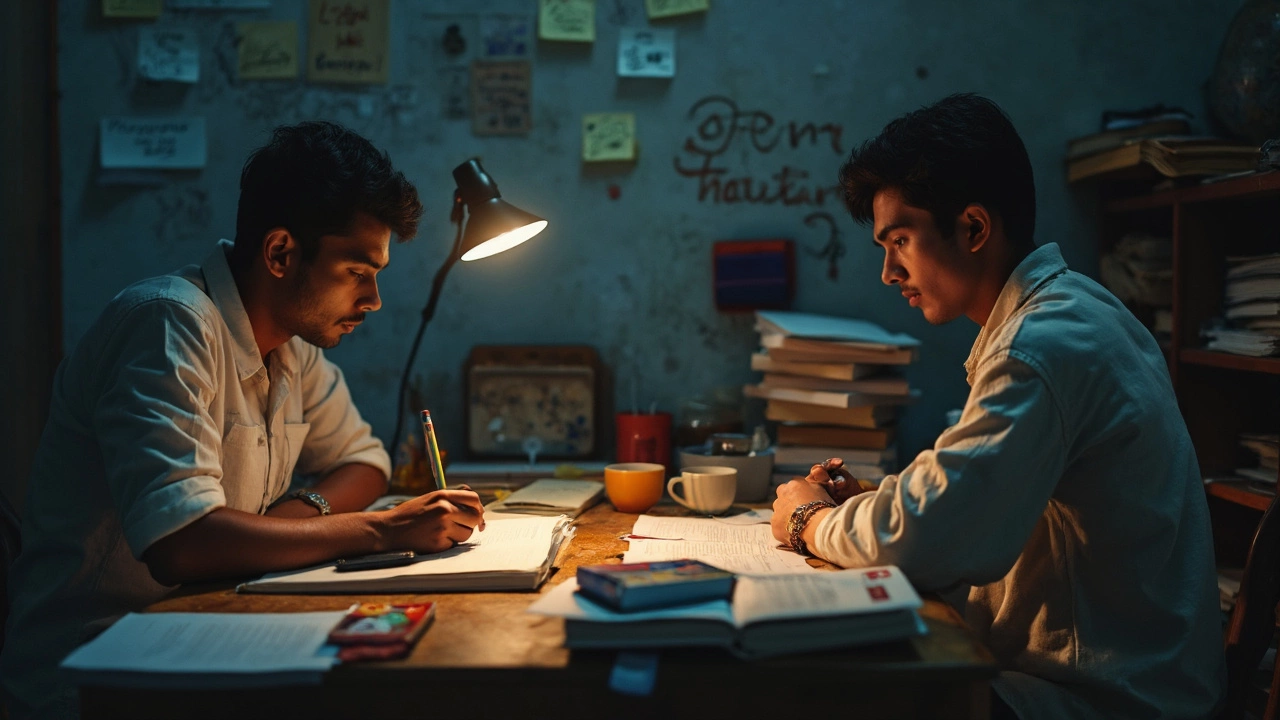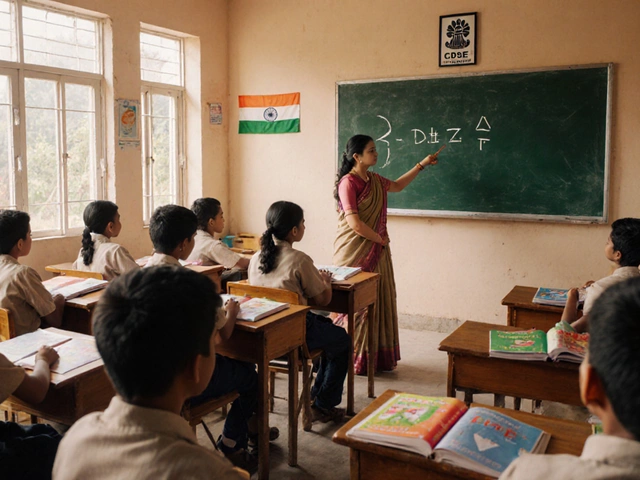
If you think your last math test was hard, wait till you hear about some of the monsters out there. There’s always a debate—what’s the world’s toughest exam? Some folks swear it’s the UPSC in India, others insist it’s China’s Gaokao, and then there’s Japan’s National Center Test giving students nightmares. These aren’t just tests—they’re full-blown marathons where millions compete for a handful of spots, and even brilliant students can walk away empty-handed.
The thing is, a tough exam isn’t just about the questions. It’s about the insane competition, the stress that keeps you up at night, and the lifetime impact if you don’t crack it. You hear stories of people studying 12 hours a day for years, parents turning into coaches, and sometimes, families moving cities just to be closer to coaching hubs. Pretty wild, right?
But what really sets these exams apart isn’t just what’s on paper. There’s the sheer pressure, the brutal cutoffs, and the way the whole system is built to filter out all but the most stubborn and prepared. If you’re someone who’s ever felt the heat, or you’re about to step into the ring for one of these, keep reading—you’ll want to know what you’re up against and how to avoid the usual traps.
- What Makes an Exam the Toughest?
- Meet the Big Names: Gaokao, UPSC, and More
- Stories from Survivors: Real-Life Exam Warriors
- How to Prepare (Without Burning Out)
- Is It Worth It? What Comes After the Victory
What Makes an Exam the Toughest?
Ever wonder what turns a regular test into one of the toughest exams on the planet? It’s not just tricky questions or thick textbooks. It’s a bunch of things that pile up until your brain wants to tap out. Here’s what separates the heavyweights from the rest.
- Massive Competition: Think millions fighting for just a few spots. For example, China’s Gaokao sees over 12 million students show up every year. India’s UPSC? More than a million apply, and only about 1,000 actually make it in. That’s tougher odds than getting into most Ivy League schools.
- Unforgiving Syllabus: These exams cover a mountain of material. UPSC makes you study everything from history and geography to ethics and current affairs. Gaokao includes everything you learned during high school, plus the ability to write killer essays and solve super complex problems.
- Time Pressure: Not enough time and way too many questions. If you freeze, you fall behind fast. Many toppers say just finishing all questions feels like a win.
- High Stakes: Your whole future can hinge on this one day. Passing means your life might change forever—college, career, respect. Mess it up, and you probably have to wait a year to try again.
- Crazy Cutoff Rates: Most people walk away disappointed. Gaokao’s top schools select less than 0.25% of applicants. UPSC civil services sees less than 0.1% make the final cut.
Here’s a quick look at the numbers for a reality check:
| Exam | Applicants | Success Rate |
|---|---|---|
| Gaokao (China) | 12,000,000+ | Below 0.25% for elite universities |
| UPSC (India) | 1,000,000+ | About 0.1% |
Add it all up, and it’s more than memorizing facts or filling in bubbles. These competitive exams are tough because the system is designed to pick only the strongest and most prepared out of a sea of hopefuls. If you want to crack them, you need more than brains—you need grit, focus, and a smart game plan.
Meet the Big Names: Gaokao, UPSC, and More
When you ask anyone about the toughest exams, you'll hear the same big names over and over: China’s Gaokao, India’s UPSC Civil Services, and a few others like the U.S. Medical Licensing Exam and Japan’s National Center Test. These are not just any competitive exams; they’re like something out of a reality show for geniuses, with sky-high stakes.
Gaokao basically locks down the whole country every June. This is China’s national college entrance test, and get this—nearly 12 million students battle it out every year for a shot at elite universities. The pressure is so real that people call it the 'single most important day' in a Chinese teen’s life. And the questions? Expect everything from advanced calculus to essays on philosophy. No surprise some families literally rent apartments near top schools months before the exam just to help their kids stay focused.
UPSC in India? Imagine an exam so tough that only about 0.2% of all applicants clear it every year. You read that right—over a million people start, but only a few thousand make it past the final interview. You need to know everything from current events and ancient history to ethics, all while handling three rounds—Prelims, Mains, and an intense personality test. The catch? There are questions with no clear answer, and the competition is made harder because everyone is ridiculously well-prepared.
| Exam | Applicants (Yearly) | Success Rate |
|---|---|---|
| Gaokao | ~12 million | ~2% |
| UPSC | ~1 million | ~0.2% |
| Japan: National Center Test | ~500,000 | ~30% |
Japan’s National Center Test is another beast. While the classroom style is neat and orderly, don’t let that fool you—students prep for years, because your university slot pretty much depends on one shot. There are even food products, like ‘exam-passing’ KitKats, made just for the season.
Let’s not forget special cases like South Korea’s “Suneung” (CSAT), which actually causes the country’s airspace and traffic to pause so noise won’t distract test-takers. And in the US, if you’re heading into medicine, you’re looking at the USMLE, known for stretching some students to the edge.
“Gaokao is not just an exam—it's a national ritual. Everyone, from taxi drivers to news anchors, talks about it,” — The Guardian, 2023
Each of these exams is brutal in its own way. Some are memory tests, others are about analysis or quick thinking, but all of them are a test of how calm and prepared you can stay when everything’s on the line.

Stories from Survivors: Real-Life Exam Warriors
Every time someone cracks an exam like the UPSC or Gaokao, there’s a whole story behind it. These aren’t just lucky breaks; they’re often tales of insane effort, serious sacrifices, and some pretty wild routines. Take the Gaokao, for instance—this “life-changing” Chinese college entrance exam has over 12 million students sitting for it every year, but fewer than 2% make it into the top-tier universities. That’s not just tough, that’s brutal.
A popular example is Su Yutong, a Gaokao legend, who showed up at her city’s library at 6 a.m. daily for two straight years. She said the worst part wasn’t the study load, but the fear of letting her family down. And it’s not just China. In India, UPSC aspirants often prep for two to three years non-stop. There’s a guy, Roman Saini, who became one of the youngest to pass the UPSC at 22. His trick? Forget fancy coaching, stick to the basics, take mock tests regularly, and don’t panic when you fail a practice test.
Sometimes, even the best stumble. There’s this stat—about 99.5% of UPSC hopefuls don’t make it on their first try. Most successful candidates actually clear it on their second or third attempt. For plenty of them, it’s as much about resilience as brain power. They talk about learning to handle failure, not getting lost in long study hours, and pacing themselves to avoid burnout.
- Practice tests are top weapons for many exam toppers. Re-creating real exam conditions helps you tackle nerves on the actual day.
- Breaks aren’t a waste—almost everyone who survived a killer exam says they had to find some downtime, whether it was a walk with their dog (shoutout to Max, my own study buddy) or just zoning out for a bit.
- Peer discussion is huge—people swap notes, explain tough topics to each other, and sometimes even teach their friends to keep the material fresh in their own minds.
Check out this table for a quick look at survivor habits:
| Habit | Used by Gaokao Toppers (%) | Used by UPSC Toppers (%) |
|---|---|---|
| Daily Revision | 88 | 85 |
| Mock Tests | 91 | 89 |
| Peer Discussion | 76 | 68 |
| Physical Activity | 54 | 49 |
So the common thread? There’s no magic formula. It’s all about smart prep, sticking with it through the lows, and making sure you don’t go nuts in the process. These competitive exams aren’t just about what you know—they’re about how you stay in the game.
How to Prepare (Without Burning Out)
Trying to take on the toughest exam is a whole different beast. The classic mistake? Just grinding all day, every day, until you’re totally worn out. It doesn’t work for the UPSC, Gaokao, or any other crazy-hard competitive exams. You need a plan that keeps you sharp, not just exhausted.
Let’s start with a simple but often ignored fact: Most toppers don’t pull 16-hour marathon study sessions. Consistency beats sprints. Here’s how you keep your head and actually remember what you study:
- Set a study schedule that fits your energy—and stick to it. If you’re a night owl, don’t force a 5 a.m. routine just because someone on YouTube said it works.
- Break your prep into small chunks. Take real breaks, too—five minutes to play with your dog (my Max is proof this helps), or go grab a bite. Your brain actually works better this way.
- Track progress, but don’t obsess. A weekly tracker for chapters covered or practice tests taken is plenty. Don’t compare your pace to others—it messes with your confidence.
- Switch subjects to avoid boredom. Study math for an hour, then move to history. Fresh topics wake your brain up.
- Don’t ignore the boring basics: sleep, food, and exercise. The National Sleep Foundation says teenagers and young adults need 7-9 hours of sleep for memory to actually stick. Crash-studying kills recall.
Mock tests are gold. For UPSC, top rankers do at least one full test weekly for months. It shows you where you trip up before you get to the real thing. Gaokao prep schools run weekly mock exams and adjust classes based on the results.
| Exam | Usual Study Hours/Day | Mock Test Frequency |
|---|---|---|
| UPSC | 6-8 | Weekly |
| Gaokao | 8-10 | Weekly to Bi-weekly |
Finally, don’t keep stress bottled up. Talk to someone—family, friends, a mentor. Sometimes just ranting for ten minutes is what you need to reset. And don’t turn your entire life into exam prep. Give yourself guilt-free downtime. That’s how the real toppers do it—they don’t mistake sleeplessness for hard work.

Is It Worth It? What Comes After the Victory
So after all those hours at your desk, trading sleep for mock tests and maybe growing a few grey hairs, a big question hits: Was it really worth it? When you crack a toughest exam like the UPSC or Gaokao, you’re not just winning a certificate. You’re stepping into a totally new world—one that can change your life, but comes with its own set of challenges.
Let’s look at numbers. In 2024, fewer than 1,000 out of over a million aspirants made it to the final civil services list in the UPSC. In China, getting a top Gaokao score can mean entry to elite universities like Tsinghua or Peking, basically securing a future with a fat paycheck and social clout. It’s basically like hitting a golden buzzer—except with way more anxiety beforehand.
"Cracking these exams doesn't just open doors – it changes the whole building," said Dr. Shalini Mehra, a career counselor who’s helped hundreds tackle competitive exams. "But remember, the pressure doesn’t magically disappear after the results."
There’s a double side to this story. On one hand:
- Job security is almost guaranteed. UPSC toppers end up as IAS, IPS, or IFS officers with real power and respect. Gaokao stars get a shot at top-tier universities, major scholarships, or key government jobs.
- You’re usually put on a career fast-track. Promotions, benefits, and social status follow closer than your dog on a good day.
But then there’s the flip side:
- The competition never really ends—now you’re competing inside the system with other high-flyers.
- Work-life balance can get rough, especially with demanding roles in the government, police, or high-pressure university labs.
- Mental health can become an issue if you jump straight from exam-warrior mode to workaholic mode. I’ve seen people burn out fast if they don’t slow down for a breather.
If you’re questioning if tackling the toughest exam is worth it, boil it down to this: it’s really about your goals. If you want stability, power, and a shot at big impact, cracking one of these can be your ticket. If you like flexible or creative careers, or if you just want to avoid the stress, it’s okay to pick another path too.
Here’s something few people discuss: many successful folks in life walked away from these tests after failing or because it just didn’t fit their personality. You don’t need a big exam result to be successful—it’s just one route, not the only map.
| Exam | Success Rate | Typical Rewards |
|---|---|---|
| UPSC (India) | 0.2% | IAS/IPS Officer, Govt. perks |
| Gaokao (China, Top Unis) | ~2% | Elite university, social status |
Nail that competitive exam, and yes, life changes big time. Miss it, and – believe it or not – there are still tons of ways to win at life. Max, my dog, never passed a test in his life, but trust me, he’s the happiest around.







